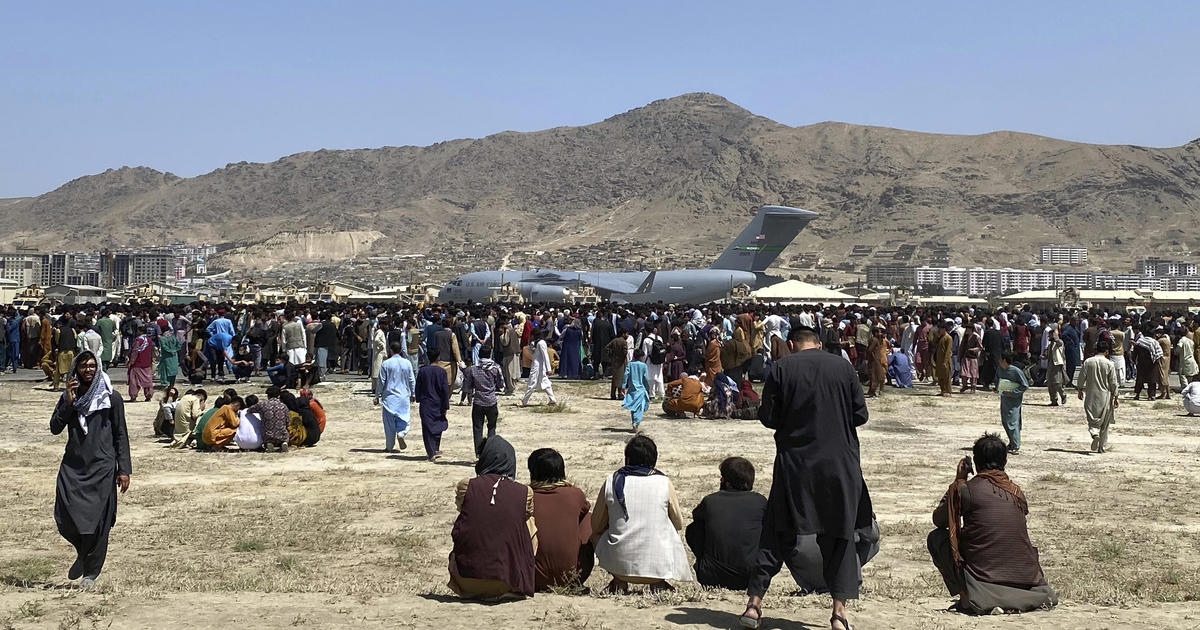
Washington Post reporter Craig Whitlock discusses Afghanistan withdrawal on "The Takeout"
CBSN
Washington Post reporter Craig Whitlock, who helped uncover years of official deception about the Afghanistan war as part of the team that published the Afghanistan Papers, suggests the chaos on the ground in Kabul is the fulfillment of the fears of four presidents. The Afghanistan Papers: "The Afghanistan papers are a collection of notes and transcripts of hundreds of interviews that were conducted with key policymakers in the war. This would include White House officials, generals, diplomats, aid workers who had served in Afghanistan over 15 to 20 years, mostly during the Bush and Obama administration. The interviews were conducted by an obscure government agency called the Special Inspector General for Afghanistan as part of a program called Lessons Learned to try and figure out what went wrong in Afghanistan." Main takeaway from the Afghanistan Papers: "The line they were telling the public throughout the war for three presidential administrations that we are making progress, that victory was around the corner... nobody really believed that privately, that all these people who were in charge of the war or who played a role were very pessimistic about where things going. They saw the war is unwinnable. So there is this real contrast between what people are saying publicly and what they were saying in these confidential interviews." How the U.S. got here in Afghanistan: "U.S. officials were really struggling as far back as the Bush administration to figure out how do we get out of Afghanistan. And that's persisted for the better part of 20 years. And I think what we're seeing now is frankly, the final outcome of that. There was always this fear that the Afghan state, as we had created it and prop it up, would collapse, that the Afghan army and police forces wouldn't fight or wouldn't be effective. And that's why the war dragged on as long as it did, because Bush, Obama, Trump and now Biden were all scared that things would fall apart and they frankly kicked the can down the road. But that's what we're seeing now." U.S. government role in funding corruption in Afghanistan: "We flooded the country with so much money, so much aid, trying to build things up in such a short period of time that Afghanistan couldn't possibly absorb it all. And that's where the corruption got worse. And we hear about the corrupt Afghan government, which is true. But the United States was the one with the money. We gave them the money. So we were responsible directly for a lot of that corruption."
"There was always this fear that the Afghan state, as we had created it and propped it up, would collapse, that the Afghan army and police forces wouldn't fight or wouldn't be effective," Whitlock told CBS News chief Washington correspondent Major Garrett on "The Takeout" podcast. "That's why the war dragged on as long as it did, because Bush, Obama, Trump and now Biden were all scared that things would fall apart and they frankly kicked the can down the road. But that's what we're seeing now." Whitlock added that the U.S. is now is now in the position of having to seek permission from the Taliban for Americans and other Afghans for safe passage from the country they now control. He said the risks of hostage-taking or the shoot-down of a departing American-led evacuation flight are real.